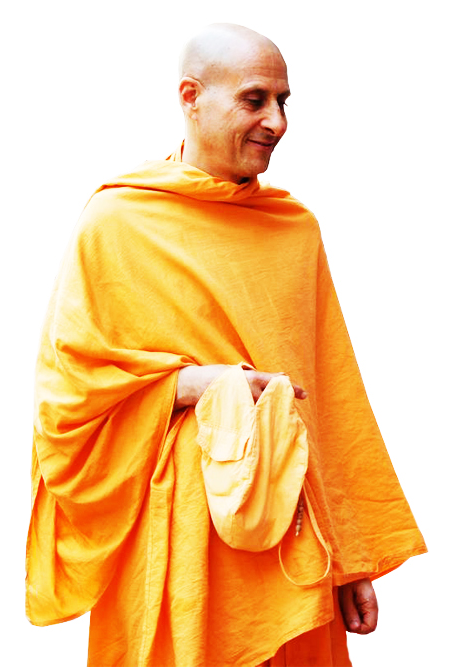It’s usually the sufferings of this world that serve as an impetus for us to not just theoretically try to understand what is beyond, but to feel the urgent need to do something about it, to realize and experience the essence of the self.
According to the Bhagavad-gita, as well as according to the teachings of Lord Buddha, the source of suffering is in the fact that the body is temporary, that life is temporary, and therefore everything is subjected to birth, old age, disease, and death.
The Vedas explain that there are three types of suffering: Adhyatmika, sufferings of one’s own body and mind; Adi-bhautika, sufferings due to other living beings; and Adi-daivika, sufferings due to natural circumstances like heat or cold, or earthquakes. These sufferings are always there, potentially posing threat to the physical body at any moment.
Analysis
The soul, Krishna explains, is never born and never dies. That source of life within the body, the source of consciousness, is the atma or the soul. The soul is transcendental. In Sanskrit: sat, cit, ananda – the soul is eternal, full of knowledge, and full of bliss. That is who we are.
The soul is like the driver of the car, and the body is like the car. We are seeing through our eyes, hearing through our ears, smelling through our nose, tasting through our tongue, touching through our skin, thinking through our brain. But who are we? Are we a brain or a heart or an eye or an ear?
We are the witness – the soul. That is who we are. That soul is by nature full of love and always fulfilled. But when that soul identifies itself with the body and becomes immersed in that state, then the soul has to identify with all of the vulnerabilities and frailties of this body. That is the source of all suffering!
The Purpose
In many ways, the sufferings in this world are blessings because they help us to take life very seriously, if we make that choice, to really understand what is deeper, what is higher than all these temporary pleasures and pains, honor and dishonor, happiness and distress, health and disease, success and failure, birth and death.
The world around us is constituted on the basis of dualities. One brings pleasure, the other one brings pain. To the degree we are attached to something that gives us pleasure, to that same degree we suffer when it is lost. Ultimately, because everything is under the consumption of time, everything will be lost.
So going through these experiences, thoughtful people contemplate, “Is there something higher?” “Is there something deeper?” “Is there something more to life than this?”
All the great saintly teachers and all the great sacred scriptures are leading us in that direction, that “There is something more.” This world is just a temporary place but this world can be a launching pad to help us realize the inner treasures within our own heart.
It’s usually the sufferings of this world that serve as an impetus for us to not just theoretically try to understand what is beyond, but to feel the urgent need to do something about it, to realize and experience the essence of the self.
The Light
In the Bhagavad-gita Krishna tells, dukhalayam asasvatam, that the nature of this world, when we are in ignorance of our true self, is suffering. Potentially there can be suffering at any moment, whoever we are, however wealthy, however educated, however powerful. Disease, people, natural circumstance, etc., they all could create a disaster, create a tragedy. So whatever happiness anyone has in this world, it is so tottering. It is like a drop of water on a lotus leaf – at any moment it could slip away. So where is permanent happiness? Where is freedom from suffering? It exists only on the spiritual platform. And that is what all the great sages have come to tell us.
In the Bible it is said, “Make your treasure not in this world, but make your treasure in the kingdom of God. In this world your treasure will be stolen by thieves, or rusted by the elements, or eaten by moths. But if you make your treasure in the kingdom of God, it will be perfect and infallible.” And then Jesus said, “The Kingdom of God is within.”
Similarly, Lord Krishna tells in the Bhagavad-gita, “One should find pleasure within”. One should find satisfaction within. One should be enlightened and illuminated from within. The life of such a person is of substantial quality and real intelligence.”
We should seek that eternal reality beyond all the sufferings of this world and thus find real happiness.




